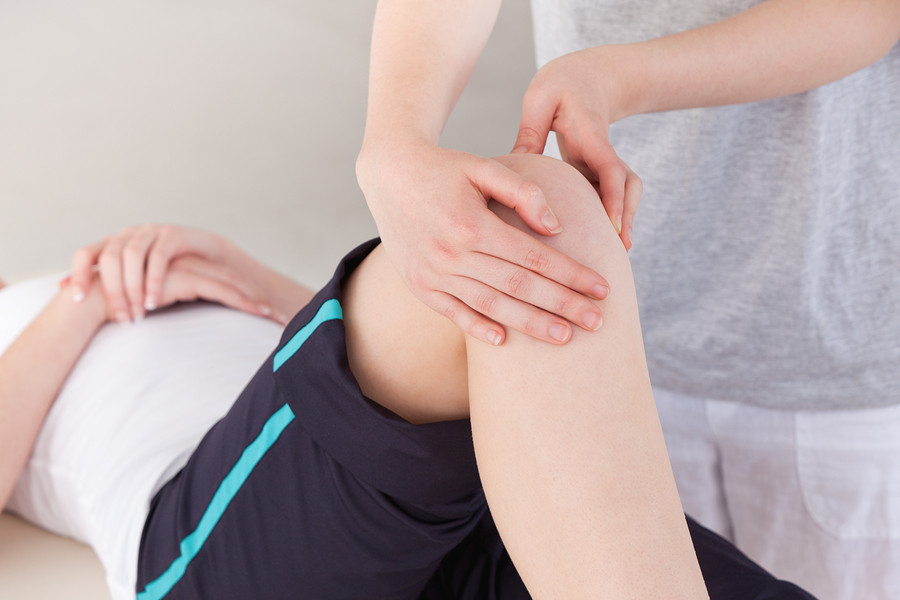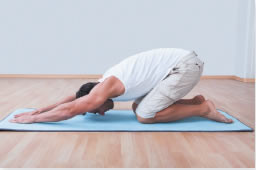
How does prostate cancer treatment affect mental health?

5 timeless habits for better health

What are the symptoms of prostate cancer?

Is your breakfast cereal healthy?

When pain signals an emergency: Symptoms you should never ignore

Does exercise give you energy?

Acupuncture for pain relief: How it works and what to expect

How to avoid jet lag: Tips for staying alert when you travel

Biofeedback therapy: How it works and how it can help relieve pain

Best vitamins and minerals for energy
Exercise & Fitness Archive
Articles
Ask the doctor: I have pelvic organ prolapse. What types of exercise should I avoid?
Q. I have pelvic organ prolapse and work out at the gym almost every day. Are there any forms of exercise that will make my situation worse?
A. Pelvic organ prolapse results from weakened muscles and ligaments of the pelvic floor, which allow your bladder or uterus to drop and press against the walls of the vagina. You didn't say what type of exercise you do at the gym, but there are a few you should avoid—lifting heavy weights, especially over shoulder height; high-impact aerobic activities involving jumping or hopping; and sit-ups. You should check with a trainer at the gym to see how you can modify strength training, core exercises, and aerobics to reduce stress on your pelvic floor.
Can you put off that knee surgery?
Don't assume surgery is necessary if knee pain sidelines you. Physical therapy may be all it takes. Image: iStock |
Physical therapy and weight loss can relieve knee pain and protect your mobility.
Yoga offers range of health benefits
In yoga, you assume a series of postures that build strength and flexibility. Images: Thinkstock |
This ancient practice may support heart health, general fitness, and mental well-being.
Gain more weight, get more GERD
Maintaining a healthy weight is the best way to rein in gastroesophageal reflux disease (GERD), or chronic heartburn, according to a study in The American Journal of Gastroenterology. Researchers found that GERD symptoms increased for every incremental rise in body mass index (BMI), which measures the ratio of weight to height.
In GERD, the acidic contents of the stomach back up into the lower esophagus, causing burning pain. The most effective treatment for GERD is taking an acid-reducing proton-pump inhibitor medication, such as omeprazole (Prilosec). People who are overweight are much more likely to develop GERD.
Shoulder pain? Here's what you can do to treat it and prevent it
A few simple measures can protect your most flexible joint and put it back in service after overuse or injury.
All you need to do is rotate your arm to realize what a marvel your shoulder is. It's the body's most flexible joint and one of the most essential. Whether you're reaching the top shelf, swinging a golf club, or washing your hair, "it's the one joint you can't stop using," says Karen Weber, a physical therapist at Harvard-affiliated Spaulding Rehabilitation Network. "We do a lot of repetitive motions with our arms. When our shoulder muscles aren't strong, we can set ourselves up for injury," Weber says.
Add strength training to your fitness plan
Muscles at workDynamic resistance occurs when muscles and joints move, such as when you raise and lower a hand weight. Image: Thinkstock |
Boosting your muscle mass may trigger changes that enhance heart health.
Walkers: Take steps to enjoy this great mobility tool
Work with a physical therapist to learn how to use a walker to best advantage so you can take back your independence.
Walkers can put you back in action if you're recovering from an injury or surgery, or if you're struggling with balance and gait problems, fatigue, or muscle weakness. "Walkers help give people their independence back. They improve daily function, and they reduce the risk of falling," says Dr. Clare Safran-Norton, a physical therapist and clinical supervisor of rehabilitation services at Harvard-affiliated Brigham and Women's Hospital.
More evidence that exercise protects mobility
If you stay physically active in your older years, you're preserving your ability to keep moving. That's not just because you're exercising your heart and lungs and keeping your muscles and bones strong, but possibly also because you are warding off the effects of common age-related brain abnormalities called white matter hyperintensities (WMH)—small areas of damage in connections in the brain that are often related to long-term changes in the small blood vessels feeding the brain. High levels of WMH are associated with difficulty walking, but a study published in Neurology March 11, 2015, observed that older adults with WMH who were more physically active suffered less movement problems.
Researchers measured physical activity among 167 older adults with WMH. For the people who were the most active—in the top 10%—greater amounts of brain damage did not affect their scores on the movement tests. But for people who were half as active or less, more brain damage was associated with much lower scores on movement tests.
SMART ways to set core exercise goals
Strengthening your core offers big payoffs, including sports successes, a stronger lower back, independent living, and all-around fitness. Sounds great, right?
Even so, finding the time and will to do these exercises may not be easy. But experts say you're more likely to be successful if you set goals that are SMART — that is, specific, measurable, achievable, realistic, and time-based. So when you set a goal for your core workouts, make sure it passes the SMART test:
Easy-does-it jogging may lead to a longer life
In a study, people who took a leisurely jog just a few times a week lived longer than those who avoided jogging. The joggers who reaped the longevity benefit ran for a total of one to 2.5 hours per week at a pace of about 5 mph.

How does prostate cancer treatment affect mental health?

5 timeless habits for better health

What are the symptoms of prostate cancer?

Is your breakfast cereal healthy?

When pain signals an emergency: Symptoms you should never ignore

Does exercise give you energy?

Acupuncture for pain relief: How it works and what to expect

How to avoid jet lag: Tips for staying alert when you travel

Biofeedback therapy: How it works and how it can help relieve pain

Best vitamins and minerals for energy
Free Healthbeat Signup
Get the latest in health news delivered to your inbox!
Sign Up











